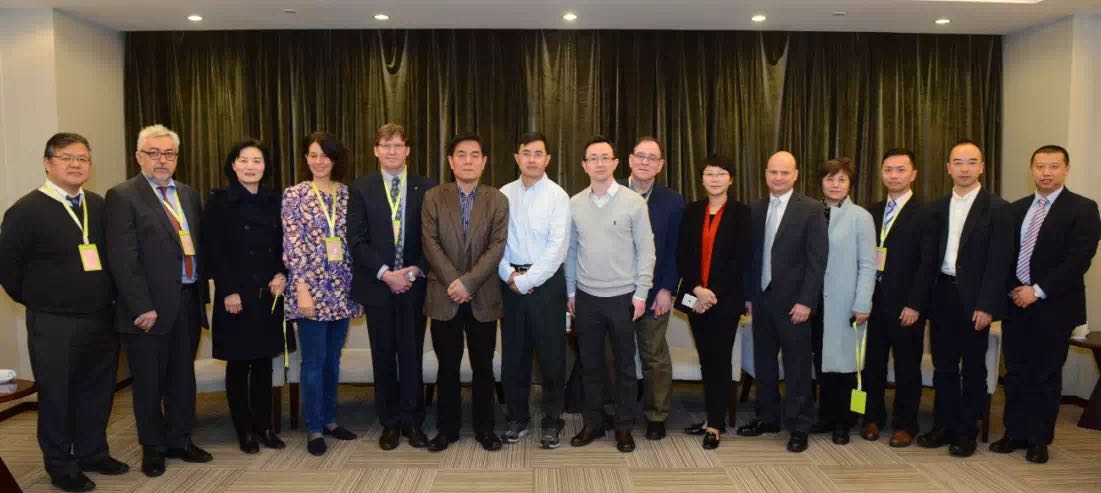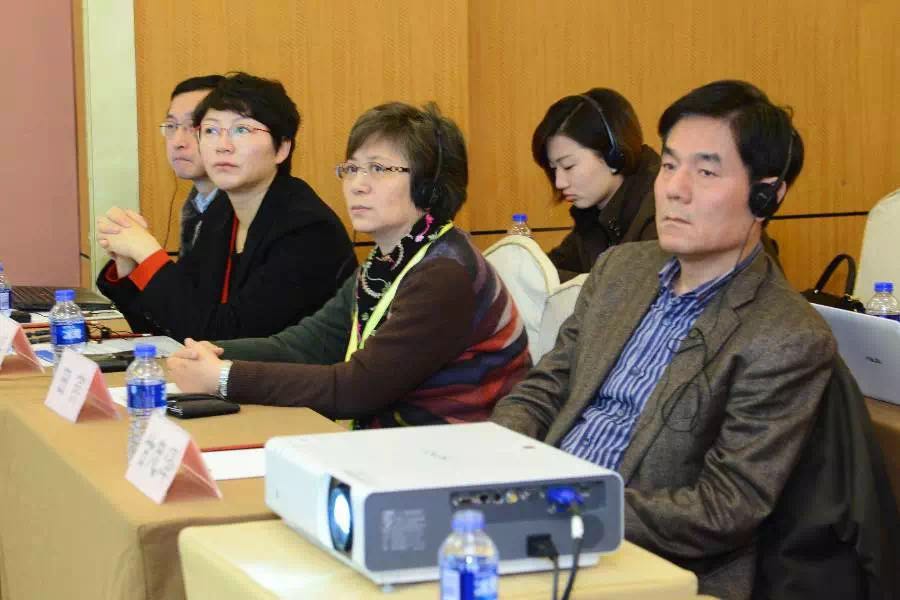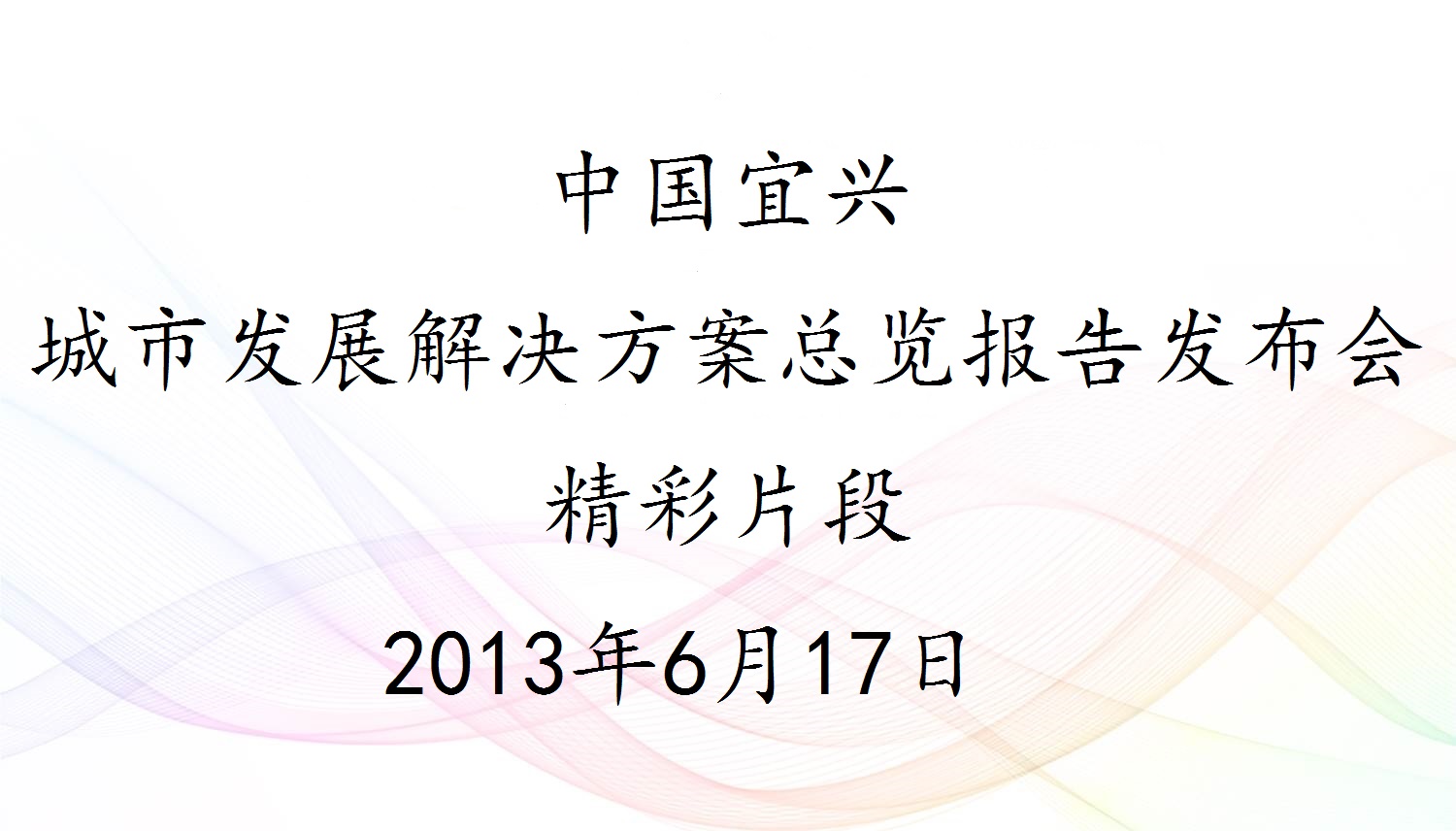2月23日—25日,为促进建筑能源效率长期战略在上海的推进与实施,世界可持续发展工商理事会和中国可持续发展工商理事会在上海举办了一场建筑能效(EEB)研讨会。

来自同济大学机械工程学院,并为EEB研讨会提供了市场研究报告的许鹏教授表示,建筑节能在上海拥有活跃的市场。然而,在新建建筑增速放缓的背景下,问题的关键在于已有建筑的节能改造。

“我们已经在技术方面积累了被动式和主动式建筑节能改造方案,然而推广建筑节能改造的困难主要集中在非技术领域——这正是建筑能效研讨会关注的焦点。”许鹏说。
持续三天讨论市场壁垒及行动建议
在为期三天的研讨会期间,来自能源效率领域的50名专家共研究了15个商业案例,并提出了改善上海建筑能效市场的四大主题:增强能源效率的区域意识、提高能源效率领域的人才能力建设、投资与融资策略,以及更为透明有效的政策法规。
在圆桌讨论上,专家们共同商讨起草了克服市场壁垒的行动方案。研讨会于最后一天召开公开总结报告会,共吸引了一百多位来自各界的参会者。
上海市绿色建筑协会会长甘忠泽致开幕词,对此次会议作出了积极评价,并表达了对建筑能效研讨会的大力支持。上海市商务委和虹口区商务委领导也出席了本次活动。
联合技术研究中心可持续发展高级总监兼WBCSD建筑能效项目联席主席William Sisson认为,建筑能效研讨会旨在通过长期过程汇集商业建筑领域的众多利益相关方,共同理清建筑能效领域的市场阻碍,合作探讨建筑能效提升方面的市场转型行动计划,促进各利益相关方达成共识。
Sisson强调,建筑能效研讨会的创新之处在于整合当地价值链,包括来自公共部门和私营部门的专家和代表等,共同解决面临的挑战并寻求解决方案。
他解释道:“我们希望通过上海建筑能效研讨会,营造一个可以让不同利益相关方和专家发表观点、披露最新进展的公开氛围,最终达成合作共识,以统一的行动计划共同应对建筑能效挑战。
中国政府关注城市发展的建筑能效
根据住建部发布的信息,中国的建筑能耗已经占到全社会总能耗的28%。中国政府于2月21日发布《中共中央国务院关于进一步加强城市规划建设管理工作的若干意见》,加强对建筑设计与施工工程中的能效指导。
这预示着中国“十三五”乃至未来一段时间城市发展将更加注重绿色转型和建筑的提能增效。《“十三五”建筑节能专项规划》提出,到“十三五”期末,建筑节能将形成1.16亿吨标准煤节能能力。
EEB平台将实施建筑能效研讨会提出的行动建议
建筑能效研讨会的讨论结果将会形成详细的行动计划,并于2016年在绿色建筑专业人员联盟(GBPP)的支持下通过上海EEB平台实施推进。
不少企业报名并期待着研讨会后的一系列活动。EEB平台欢迎任何有志于在上海开展行动的机构,共同促进建筑能效市场。
更多信息
上海建筑能效研讨会是世界可持续发展工商理事会在全球开展的10个由私营部门主导的试点项目之一。详情请访问http://www.wbcsd.org/buildings.aspx
上海建筑能效研讨会由世界可持续发展工商理事会与中国可持续发展工商理事会主办、联合技术公司和凯迪思(中国EEB项目管理方)协办。EEB平台联系人:周燕 GBPP;详情请访问joan.zhou@gbppchina.com
以下为英文原文
Shanghai EEB Lab delivers an action plan to boost energy efficiency inbuildings
To facilitate thedevelopment and implementation of a long-term strategy for energy efficiency inbuildings in Shanghai, the World Business Council for Sustainable Development(WBCSD) and the China Business Council for Sustainable Development (CBCSD) heldan Energy Efficiency in Buildings Laboratory (EEB Lab) on Feb. 23 - 25 inShanghai.
PengXu, professor at the College of Mechanical Engineering, Tongji University andauthor of a market study to prepare the EEB Lab, indicated that Shanghai has avibrant market for new energy efficient buildings. Peng Xu pointed out thatchallenges remain in addressing energy efficiency in existing buildings andretrofitting, particularly during periods of slow new building growth. Thereare existing retrofitting technical solutions for energy efficiency throughpassive and active measures, yet difficulties are mostly associated with thenon-technical aspects –which is the focus of the EEB Lab.
Three days to discuss market barriersand recommendations for action
Duringthe three-day seminar, 50 experts on energy efficiency studied 15 businesscases and considered four themes for improving the Shanghai EEB market:boosting regional awareness on energy efficiency; bolstering workforce capacityand capability on energy efficiency; investing and financing strategies; and makingpolicy and regulations more transparent and effective. Roundtable discussionswere organized to draft the action plan ingredients to overcome marketbarriers. On the final day of the EEB Lab, a public plenary event was held withmore than 100 participants from the regional market. Gan Zhongze, chairman of ShanghaiGreen Building Council, delivered the opening speech, and presented a positive evaluationof the conference and expressed his support for the EEB Lab. The event was alsoattended by officials from the Shanghai Municipal Commission of Commerce andShanghai Hongkou District Commission of Commerce.
WilliamSisson, senior director of Sustainability for United Technologies ResearchCenter, Inc. and co-chair of the WBCSD's Energy Efficiency in BuildingsProject, defined the EEB Lab concept as a multi-day process aimed at engaging across section of the region's building stakeholders. Discussions focus on understandingthe key barriers to energy efficiency in the marketplace and organizing arecommendation based action plan to address them.
Sissonhighlighted the innovative approach of the EEB Lab to consolidate local valuechains by collaborating with experts and representatives from both private andpublic sectors to jointly address identified challenges and seek solutions.
"Throughthe Shanghai EEB Lab, we aim to create an open environment for stakeholders andexperts to share best practices, voice their views, unveil the regions' latestdevelopments and ideas, and ultimately reach consensus on cooperation toaddress the challenges in energy efficiency in buildings under a unifiedplan," he explained.
Chinese authorities currently focus on energyefficiency in urban development
Accordingto the Ministry of Housing and Urban-Rural Development, buildings represent 28 percentof all energy consumption in China. This has led Chinese authorities to reinforcetheir guidelines on energy consumption in the design and construction ofbuildings, as indicated in a publication issued on Feb. 21s. These guidelinesalso signal that China will pay greater attention to fostering "green"transformation and improving energy efficiency in buildings in urbandevelopment while implementing its 13th Five-Year Plan (2016-2020). The 13thFive-Year Plan states that energy-saving initiatives for buildings should save 116million tons of standard coal equivalent by the end of 2020.
The EEB platform will implement the recommended actions during the EEB Lab
Theoutcomes of the EEB Lab will be consolidated into a detailed action plan. Implementationof the plan will begin in 2016 through the EEB platform Shanghai, which will becoordinated by the Green Building Professional Partnership. Several businesses havealready signed up, expressing their interest in the activities following theworkshop. The EEB platform is open to any interested organizations motivated totake action in Shanghai to boost the market for energy efficiency in buildings.
More information:
TheShanghai EEB Lab is part of the 10 pilot private sector-led engagements carriedout by the WBCSD at a global level. Visit http://www.wbcsd.org/buildings.aspx for details.
TheShanghai EEB Lab was co-organized by the WBCSD and China BCSD with United Technologies and Arcadis servingas company leads for China.
Contact forthe EEB platform: Joan Zhou, GBPP joan.zhou@gbppchina.com


